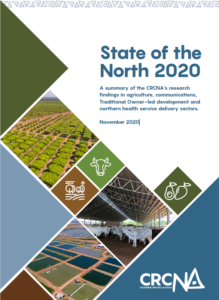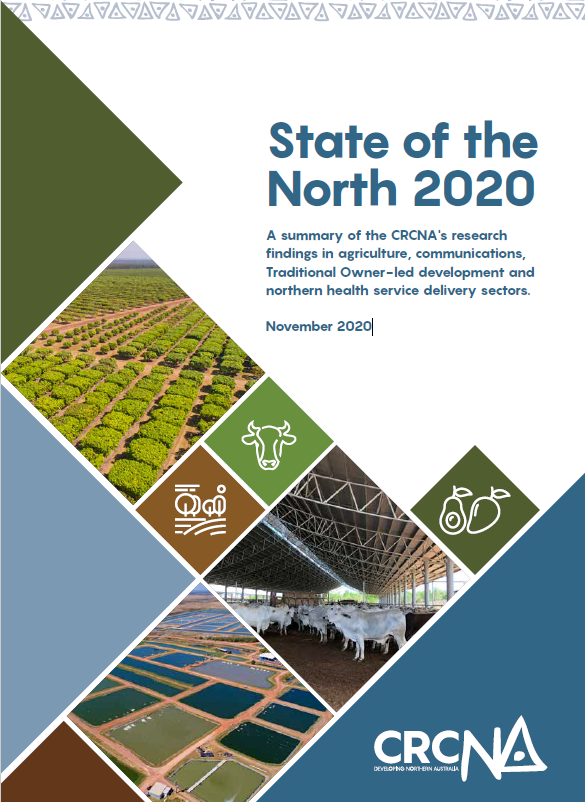Northern Australia’s key agriculture and health service delivery sectors are under the spotlight in a new discussion paper published by the Cooperative Research Centre for Developing Northern Australia (CRCNA) today.
The paper titled Securing outcomes and measuring progress: a preliminary report into agricultural development and tropical health servicing in Northern Australia is an overview of the CRCNA’s strategic research collaborations examining the north’s beef, rice, broadacre cropping, aquaculture, forestry, horticulture and indigenous agriculture and development. It also discusses the CRCNA’s commissioned research into the health and communication sectors, freight and regional supply chains.
 CRCNA CEO Jed Matz said the Paper established the foundations for benchmarking and monitoring the progress of these sectors and outlined the emerging findings from the research collaborations to date.
CRCNA CEO Jed Matz said the Paper established the foundations for benchmarking and monitoring the progress of these sectors and outlined the emerging findings from the research collaborations to date.
“We’ve partnered with industry leaders, researchers and various government agencies to examine the opportunities and impediments facing sectors across the north and outline some of the emerging themes across the sectors for further examination.
“Our project teams have undertaken extensive research across the sectors incorporating industry forums, workshops, face-to-face meetings, surveys, literature reviews and data analysis to gather, for the first time, information specific to the Northern Australian context.
Report author, CRCNA Chief Scientist Professor Allan Dale said the emerging research from the situational analyses projects has identified common opportunities and risks across the key sectors, such as attracting and retaining skilled labour, inputs costs like energy, freight, and communications, biosecurity and regulatory and policy challenges which impede development opportunities.
“This research suggests there is a need for greater collaboration across the Northern Australian industry sectors to develop a coordinated approach to overcoming some of these common impediments.
“De-risking the Northern Australian investment landscape is also an important emerging theme across the sectors, with a clear desire for state and territory governments to consider how policy and regulation impact on the broader Northern Australian development agenda,” he said.
Professor Dale said the CRCNA is now working on a more comprehensive report which will consider issues raised in the Discussion Paper, examine the recommendations stemming from the research and propose next steps and possible solutions in a report due to be delivered at the Developing Northern Australia (DNA) Conference in July 2020.
While Mr Matz said the emerging findings from the sectoral and supply chain projects will inform the CRCNA’s future investment planning and R & D prioritisation.
Projects discussed in this report including:
- Northern Australian aquaculture situational analysis
- Northern Australian forestry situational analysis
- Northern Australian rice situational analysis
- Northern Australian beef situational analysis
- Northern Australian broadacre cropping situational analysis
- Northern Australian health service delivery situational analysis
- Northern Australian Communication Analysis
- Mackay, Isaac, Whitsunday agribusiness export supply chain mapping study
- Growth of agricultural exports from FNQ through enhanced supply chains
- Prioritising, de-risking and brokering agricultural development in the Northern Territory and Western Australia
- Re-framing Northern Australian supply chains
- Evaluation of the potential to expand horticultural industries in Northern Australia
- North Queensland agricultural market and supply chain study
- Building the Traditional Owner-led bush products sector
- Capturing the ASEAN agricultural opportunity for Northern Australia
- Business on Country: Land use diversification on the Indigenous Estate
- Northern Australian agriculture investor identification and analysis
Media enquiries
Carla Keith, CRCNA Communications 0499 330 051


